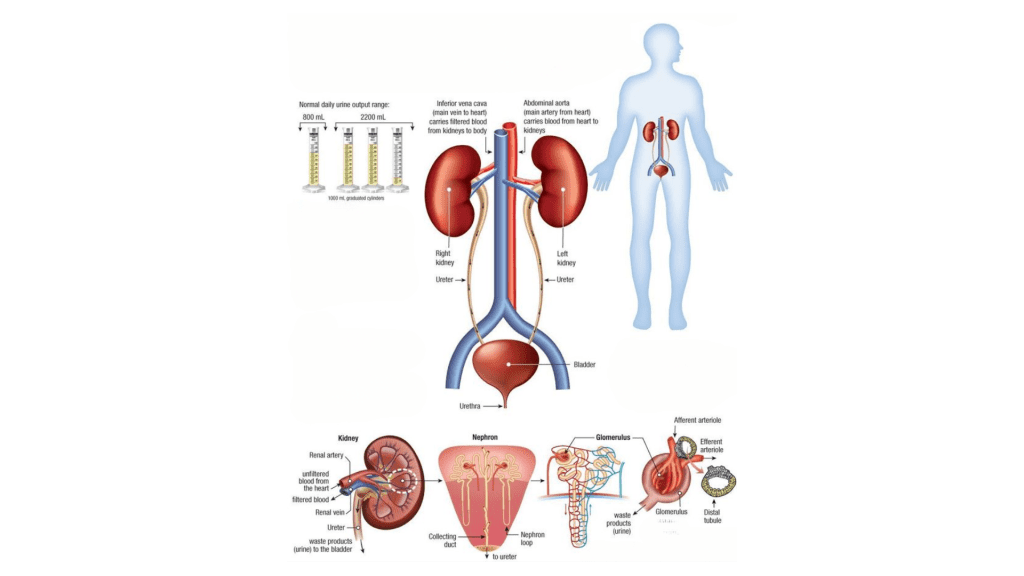+8801771781712

Urinary Bladder when Older: Specific changes that are associated with aging are readily apparent, such as gray hair and wrinkles.
On the other hand, your body undergoes various changes with each passing year. As you get older, your bladder and urinary system may undergo changes, and these changes are often undesirable.
Gaining an understanding of these shifts and adopting measures to adapt to them might be beneficial to your health.
Every year, around ten percent of women who have gone through menopause have an infection of the urinary system. It is not as high as the rate for younger women, where 17 percent of them report getting a urinary tract infection (UTI) per year. It is possible for elderly women to have a distinct set of symptoms.
A recent research that was published in the Archives of Gerontology and Geriatrics found that an increased likelihood of experiencing intense desires to urinate, leakage, as well as lower back and abdominal discomfort, is associated with older women. When it comes to urinating, younger women are more prone to experience discomfort and burning sensations, and they pee more often than older women.
Cotton underwear and a large amount of water—six to eight glasses of eight ounces each—are two of the most effective ways to protect yourself against these excruciating diseases. It is recommended that women clean their bodies from front to back after using the restroom, and that they empty their bladders after engaging in sexual activity.
Problems with the bladder are associated with changes in the reproductive system, and this is true for both men and women. Men often see an increase in the size of their prostate, which is a gland that is about the size of a walnut and surrounds the urethra. When it comes to women, having weaker pelvic muscles might cause the bladder to shift out of place, which can result in problems emptying the bladder.
These two issues have the potential to obstruct the passage of urine. If you are experiencing symptoms that are associated with an obstruction, you should see a medical professional. Abdominal discomfort, trouble passing urine, and, in rare instances, blood or discharge are some of the symptoms for this condition.
With increasing age, the muscles that line your bladder become less flexible and more prone to weakness. Your bladder may not be able to empty completely when you go to the bathroom because of the lack of strength and stretchiness that you have experienced. An expert in the field, such as a urologist or urogynecologist, may be able to assist you if you are experiencing difficulties in completely emptying your bladder.
It’s a fact that as you grow older, you’re more likely to have incontinence, which is the act of spilling pee when you don’t mean to. It is not necessary for you to accept it as a natural component of the aging process. Talk to your physician about whether or not making changes to your lifestyle, taking drugs, or undergoing surgery might help alleviate your symptoms.
Additionally, as you get older, your chance of developing bladder stones, which are painful, hard crystals of minerals that accumulate within the organ, rises. In most cases, they are accompanied by an infection or an enlarged prostate, and they are far more prevalent in males than in females.
It is possible for drinking water to flow through some tiny stones. During surgery or with the use of a tiny tube that is inserted into the urethra, other types of infections may be eliminated.
The sixth most frequent kind of cancer in the United States is bladder cancer, which affects a much higher percentage of males than it does women. But the danger is higher for everyone as they become older. Also increasing your chances include smoking, being exposed to chemicals at work, and having a family history of the condition.
Some of the symptoms of bladder cancer include the presence of blood in the urine, discomfort while urinating, the need to bend over in order to empty the bladder, and pain in the lower back. In addition, these symptoms may be brought on by a wide variety of other health issues. Please let your physician know if you encounter them so that he or she can evaluate the origin of the symptoms and initiate therapy if it is required.
Every year, around ten percent of women who have gone through menopause get a urinary tract infection. It is possible that you may have symptoms such as intense impulses to pee, leaks, and discomfort in your lower back and abdomen.
On average, the prostate becomes larger as men get older. When it comes to women, a weakening of the pelvic muscles might result in the bladder shifting out of its proper position. The flow of urine may be obstructed by any of these.
Additionally, as you get older, your chance of developing bladder stones, incontinence, and kidney cancer rises.
Try not to feel ashamed when you talk about your symptoms with your doctor. Alterations to one’s way of life, medicine, or surgical procedures are all potential treatment choices.
There are seven reasons why men have urinary incontinence.